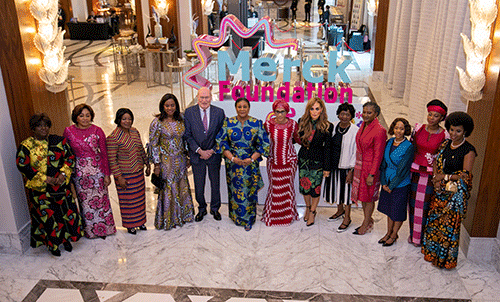Infertility in men and women can be congenital or acquired, which makes them multifactorial.
Specialist Dr David Emvula said this at the Government Information Centre recently, highlighting the need to address infertility issues, as some can be fixed.
He said it is key to find where the problem is so that it can be addressed.
The gynaecologist and obstetrician said, globally, 30% of infertility is unexplainable – but in the African and Namibian context, tubal factor infertility (fallopian tube obstruction) seems to be more common.
The tubal factor is one complication of chlamydia trachomatis infection in women.
Sexually transmitted chlamydia and genital mycoplasma infections are preventable causes of infertility and negative pregnancy outcomes.
“This is one of the most common causes of infertility that we see in our population. One of the most causes of tubes getting blocked is related to infections. What happens is a woman can get an infection that gets to the tubes and subsequently the tubes close which prevents sperm from fertilising it,” explained Emvula.
The World Health Organisation states that in the male reproductive system, infertility is most commonly caused by problems in the ejection of semen, absence or low levels of sperm or abnormal shape (morphology) and movement (motility) of the sperm.
In the female reproductive system, infertility may be caused by a range of abnormalities of the ovaries, uterus, fallopian tubes and endocrine system, among others.
Sexually transmitted infections are the main causes of the blockage of the tubes, especially chlamydia. Women get exposed to this STI without exhibiting any signs or symptoms, they would only release it later when they try to conceive.
“The other issue related to causing blockage of tubes is unsafe termination of pregnancy,” he added.
He debunked the myth that women are more prone to being infertile, stating that both men and women play an equal role in the process.
“What we see in society is that because of our traditional beliefs, women bear the burden of infertility because of the perception that it is a women’s problem.
“What we see in practice is that we refer to it as a couple’s problem rather than saying it is a woman’s problem. We also raised awareness around male factor infertility and reduce the stigma and taboo surrounding infertility,” stated Emvula
He said, “Namibia lacks in-depth data or statistics regarding infertility and fertility rate. We do not have studies that have been conducted in the Namibian setting to give us the true data related to that”.
First Lady Monica Geingos has been a staunch advocate of having healthy conversations surrounding infertility saying “it is wrong to still position motherhood and fatherhood as the ultimate goal for women and men” and that whether one can conceive or not “you remain a woman or a man”.
In 2020, the Office of the First Lady, in partnership with the Merck Foundation under Rasha Kelej, launched the campaign on infertility to raise awareness of the challenges and possible solutions to empower infertile men, women, couples and their families through access to information, health and change of mindset.
Kelej stated whether one has children or not, they are valuable members of society, adding that creating awareness is imperative, especially for young ones so that they can one day have confidence and not accept discrimination or be ashamed when unable to conceive.
“When you become a mother-in-law or sister-in-law, do not harass or mistreat (childless people) but offer support,” she pleaded.
Meanwhile, the Windhoek In-vitro fertilisation clinic has a variety of options available to help identify the cause(s) of infertility and ultimately provide couples with the highest chance of realising their dream of having a baby.
The clinic says the majority of infertile couples who seek help eventually have a baby.
Pregnancy rates for assisted reproductive technology now exceed the monthly fertility rate for most ‘fertile’ couples.
But to achieve this, it may be necessary to have repeated treatments.
So, the earlier the treatment is sought, the more likely the chance of a successful conception.
– psiririka@nepc.com.na


